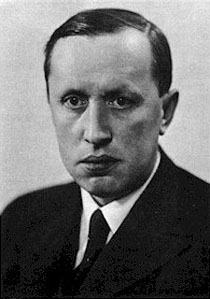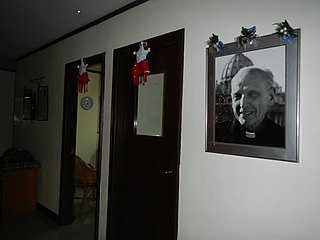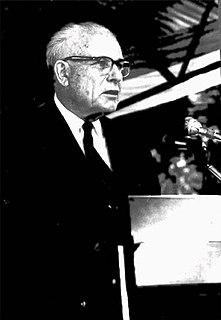A Quote by Henry David Thoreau
In summer we live out of doors, and have only impulses and feelings, which are all for action, and must wait commonly for the stillness and longer nights of autumn and winter before any thought will subside; we are sensible that behind the rustling leaves, and the stacks of grain, and the bare clusters of the grape, there is the field of a wholly new life, which no man has lived; that even this earth was made for more mysterious and nobler inhabitants than men and women. In the hues of October sunsets, we see the portals to other mansions than those which we occupy.
Quote Topics
Action
Any
Autumn
Autumn And Winter
Bare
Before
Behind
Clusters
Commonly
Doors
Earth
Even
Feelings
Field
Grain
Hues
Impulses
Inhabitants
Leaves
Life
Live
Lived
Longer
Made
Man
Mansions
Men
Men And Women
More
Must
Mysterious
New
New Life
Nights
Occupy
October
Only
Other
Out
Portals
See
Sensible
Stillness
Summer
Sunsets
Than
Those
Thought
Wait
Which
Wholly
Will
Winter
Women
Related Quotes
While we only look at Nature it is fair to say that Autumn is the end of the year; but it is still more true that Autumn is the beginning of the year.... Autumn is the time when in fact the leaves bud. Leaves wither because winter begins; but they also wither because spring is already beginning, because new buds are being made, as tiny as percussion caps out of which the spring will crack.... It is only an optical illusion that my flowers die in autumn; for in reality they are born.
In winter, play with the snow; in summer, play with the Sun! Do not wait for something to come; everything is already here! In autumn, play with the leaves, in spring, play with the flowers! In summer, don't wait for the winter; in winter, don't wait for the summer! Everything is already here, in this present time you live in!
Love is fed by the imagination, by which we become wiser than we know, better than we feel, nobler than we are: by which we can see life as a whole, by which and by which alone we can understand others in their real and their ideal relation. Only what is fine, and finely conceived can feed love. But anything will feed hate.
I believe that a desirable future depends on our deliberately choosing a life of action over a life of consumption, on our engendering a lifestyle which will enable us to be spontaneous, independent, yet related to each other, rather than maintaining a lifestyle which only allows to make and unmake, produce and consume - a style of life which is merely a way station on the road to the depletion and pollution of the environment. The future depends more upon our choice of institutions which support a life of action than on our developing new ideologies and technologies.
Landscapes can be deceptive. Sometimes a landscape seems to be less a setting for the life of its inhabitants than a curtain behind which their struggles, achievements and accidents takes place. For those who are behind the curtain, landmarks are no longer only geographic but also biographical and personal
Today our (Society of Jesus) prime educational objective must be to form men (and women) for others; men (and women) who will live not for themselves but for God and his Christ - for the God-man who lived and died for all the world; men (and women) who cannot even conceive of love of God which does not include love for the least of their neighbors; men (and women) completely convinced that love of God which does not issue in justice for others is a farce.
I cannot be known Better than you know me Your eyes in which we sleep We together Have made for my man’s gleam A better fate than for the common nights Your eyes in which I travel Have given to signs along the roads A meaning alien to the earth In your eyes who reveal to us Our endless solitude Are no longer what they thought themselves to be You cannot be known Better than I know you.
To think that the affairs of this life always remain in the same state is a vain presumption; indeed they all seem to be perpetually changing and moving in a circular course. Spring is followed by summer, summer by autumn, and autumn by winter, which is again followed by spring, and so time continues its everlasting round. But the life of man is ever racing to its end, swifter than time itself, without hope of renewal, unless in the next that is limitless and infinite.
No citizen of this nation is worthy of the name unless he bears unswerving loyalty to the system under which he lives, the system that gives him more benefits than any other system yet devised by man. Loyalty leaves room to change the system when need be, but only under the ground rules by which we Americans live.
Fear is the tool of a man-made devil. Self-confident faith in one's self is both the man-made weapon which defeats this devil and the man-made tool which builds a triumphant life. And it is more than that. It is a link to the irresistible forces of the universe which stand behind a man who does not believe in failure and defeat as being anything but temporary experiences.
It is very difficult to be wholly joyous or wholly sad on this earth. The comic, when it is human, soon takes upon itself a face of pain; and some of our griefs (some only, not all, for it is the capacity for suffering which makes man August in the eyes of men) have their source in weaknesses which must be recognized with smiling com passion as the common inheritance of us all.
Just as women supplement men in private life, so they will supplement men in public life by concentrating their organized efforts on those objects which men are likely to ignore. There is a tremendous field for women as active protagonists of new ideas and new methods of political and social housekeeping. When organized and conscious of their power to influence their surroundings, women can use their newly acquired freedom in a great many ways to mold the world into a better place to live in.
Even a good marriage leaves people with longings for certain things their marriage will never be. So, do they accept that, make compromises, and say, "You can't have everything in life," which is what we always did? Or do they say, "I deserve more. I want to experience that thing and, you know, I have fifty more years to live than I used to." It's not necessarily that we have more desires today, but we do feel more entitled to pursue them. We live in this "right to happiness" culture, and yes, we do live half a century longer than we used to.



































